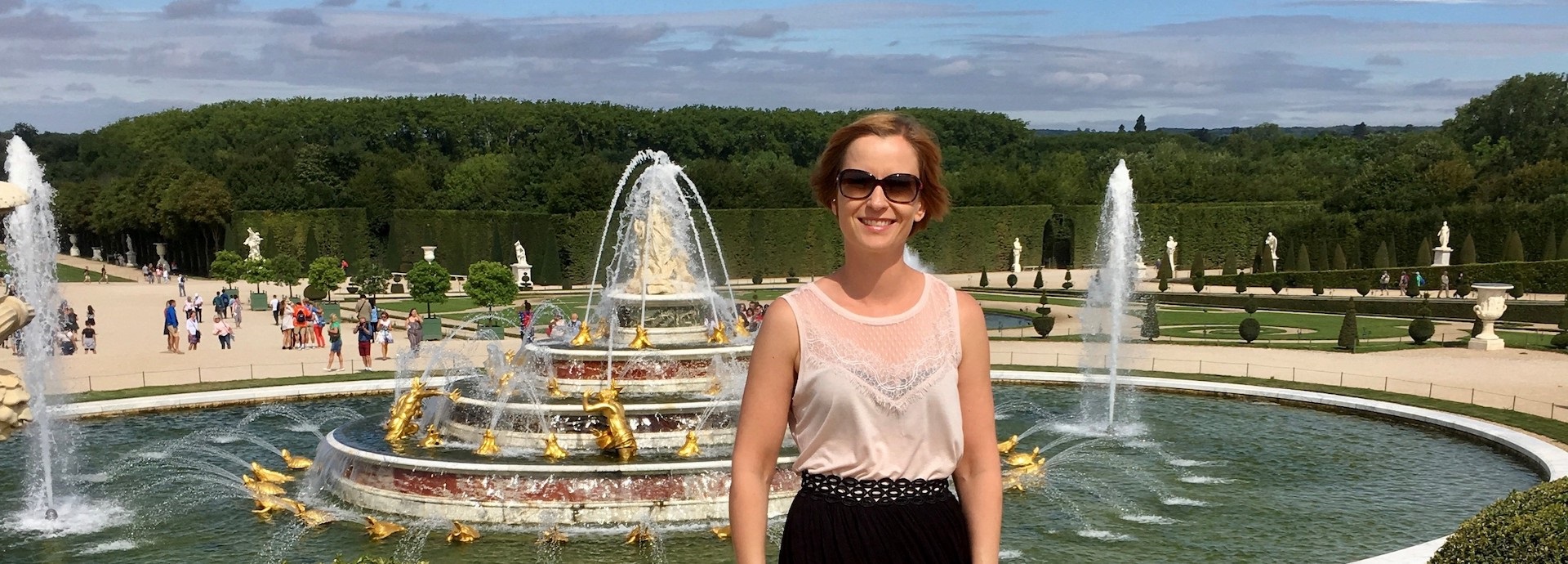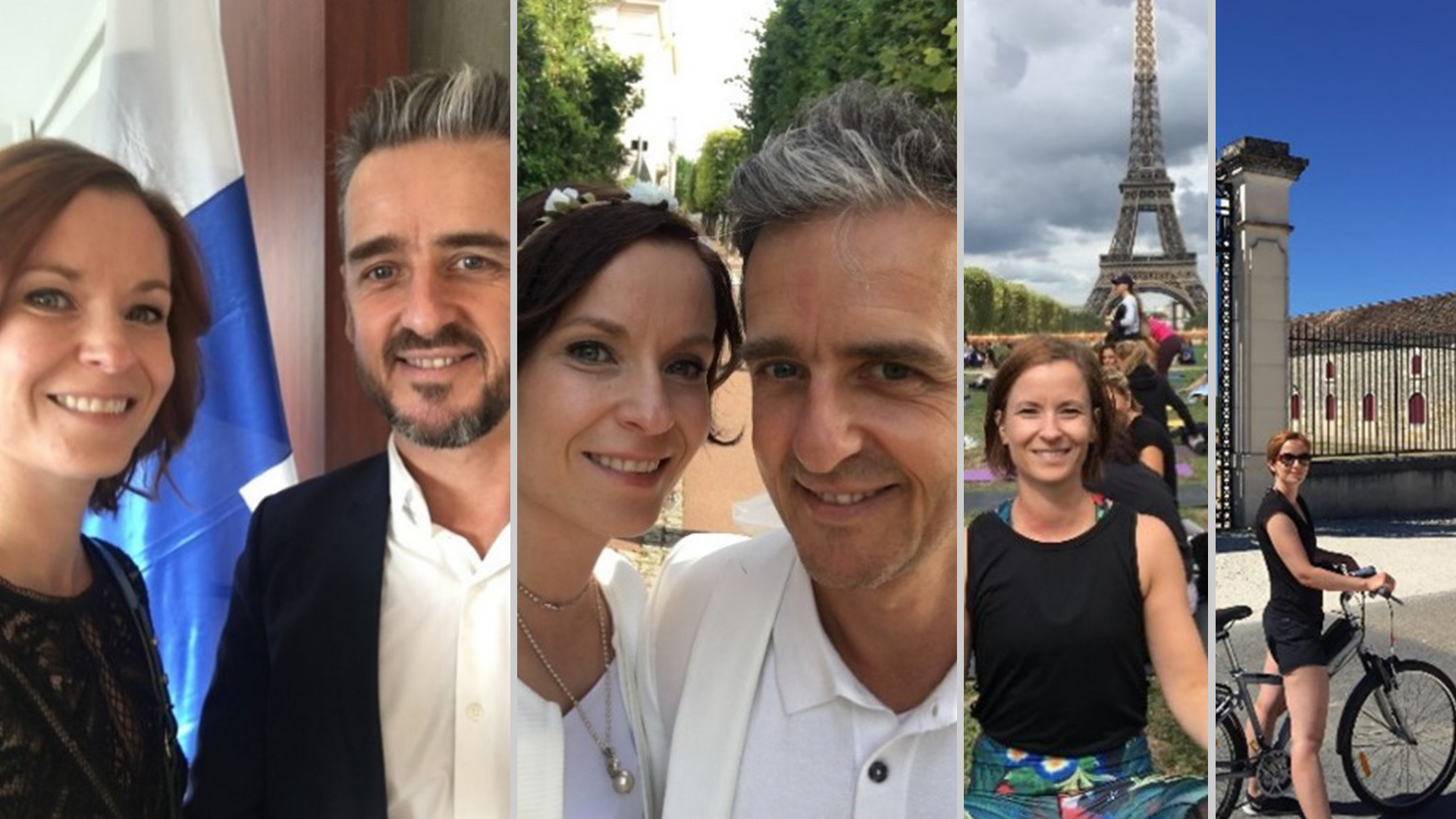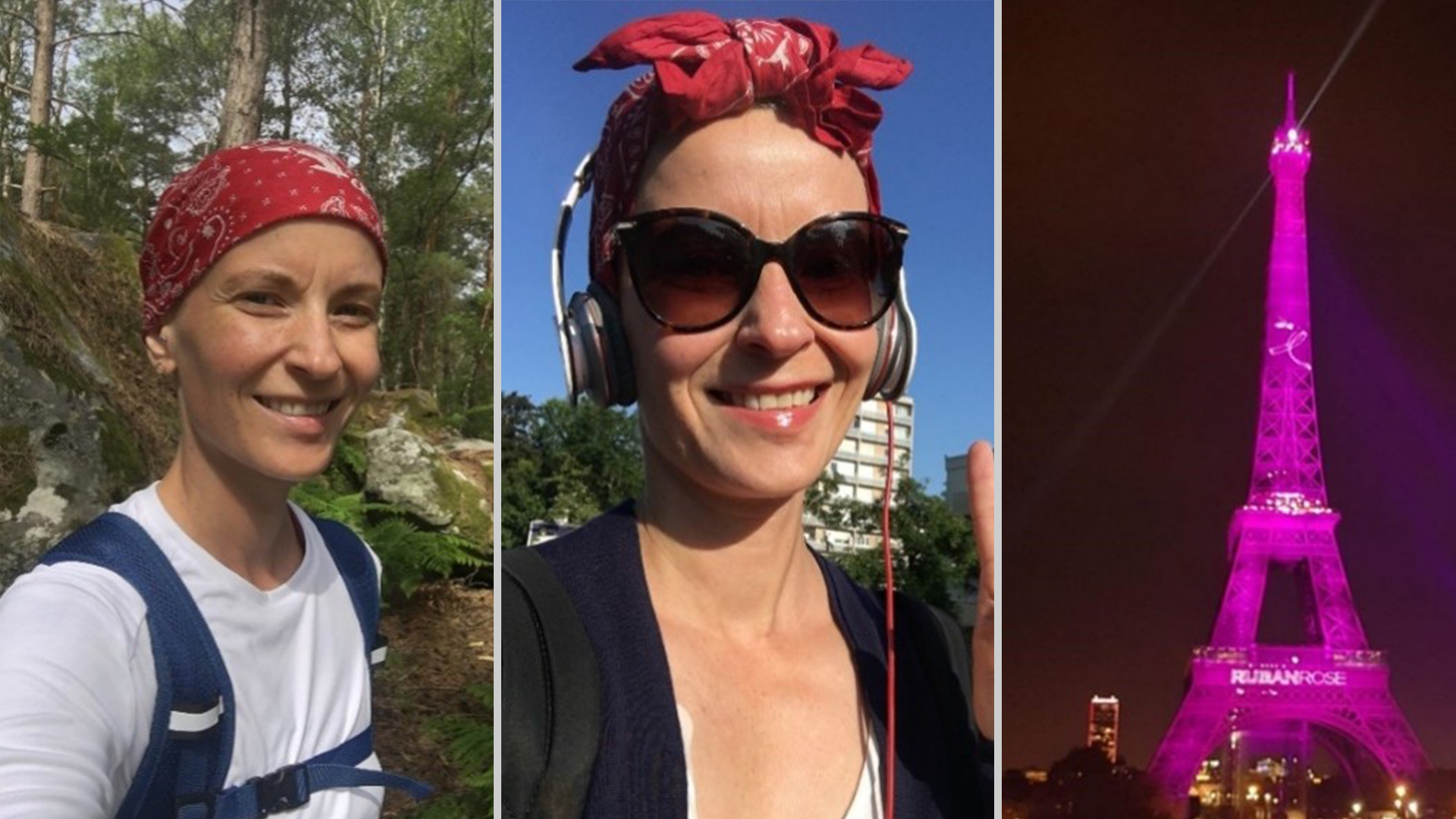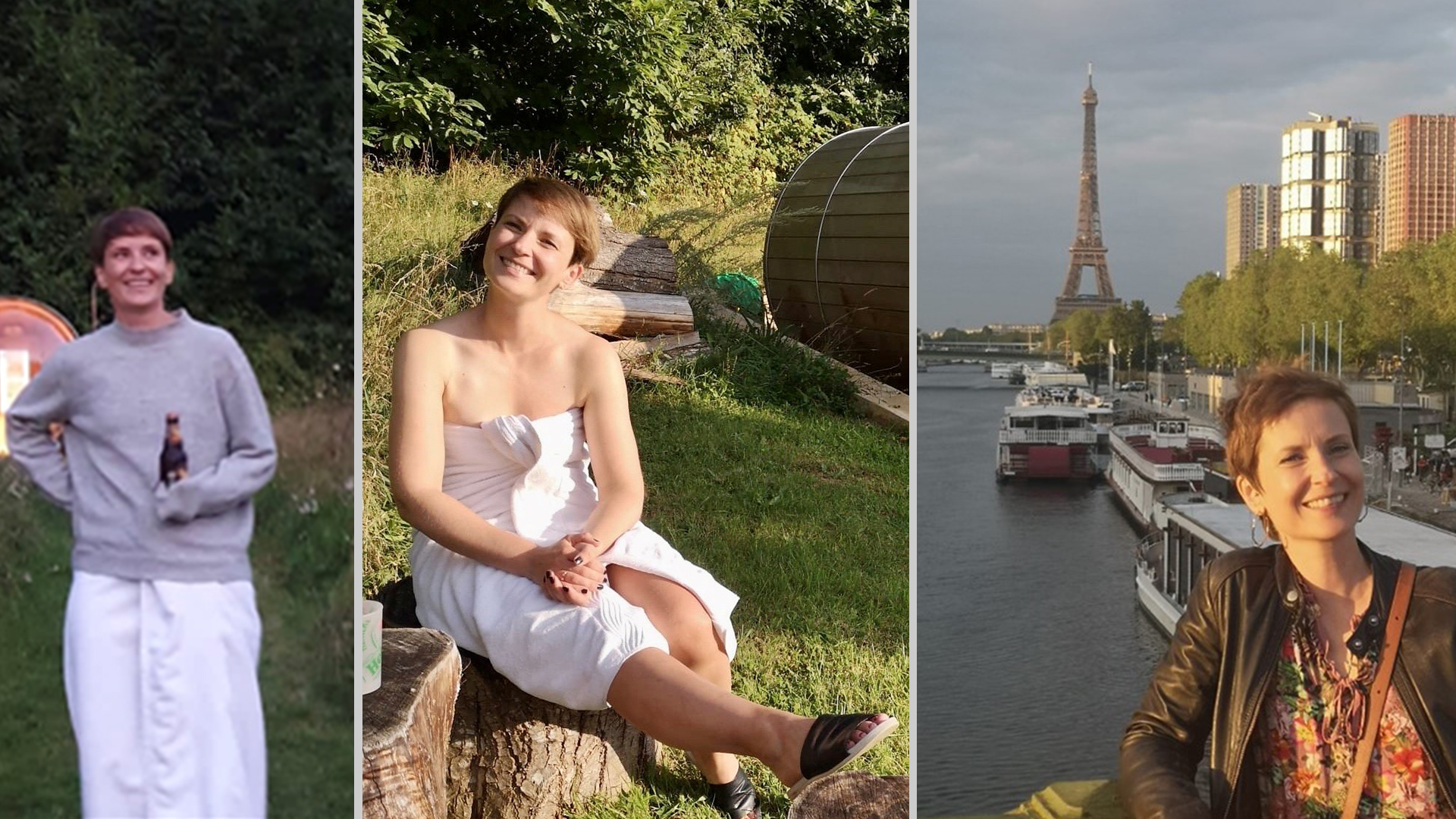

Over the past four years, Johanna Kuusisto has learnt to become a Parisian – maybe not in the most literal sense, but she has certainly settled in and knows where to pick up her morning porridge. There was a time that moving away from Finland felt like a major challenge, but she soon took control of the real turning points in her life.
This is the 10th edition of our People with Purpose series, which highlights the employees of Wärtsilä by looking at the pivotal moments in their lives and what inspires them beyond their daily work. Now, we travel to Johanna, our colleague in France, who opens up about her recent trials in a frank and honest way.
My Wärtsilä journey started in 2006 as a summer trainee with the Documentation team at the power plant in Vaasa, Finland. They are one of the biggest employers in the region and getting the opportunity made me optimistic that the position would offer a good chance for continuation with the company. And well, that happened. After my trainee period ended in September 2006, I was offered a permanent contract. Since then, I have worked for Wärtsilä in seven different positions.
Today, in 2021, I can fulfil my passion. I am helping our sales teams to work better now and in the future. I particularly enjoy collaborating with various colleagues to make an impact in a dynamic work context. No day is like any other in my work around process development, change management, transformation projects, sales capability development and organisational development projects.
Au revoir!
In 2015, I met my partner, who is French and lives near Paris. It would take two years before I asked myself that major question: am I be ready to leave behind my friends, family, routines and life in Finland, and jump into the unknown? In May 2017, the answer was yes. We decided that the time had come to live under the same roof, so I moved to France.
The immediate decision to move raised a lot of questions, such as can I stay working with Wärtsilä or will I have to find a new job? How will I manage with a new culture and non-existent French skills? Will I make friends, and can I manage to be so far away from my family? And last but not least, do they sell porridge in France?
For an introvert like me, it was not an easy decision to make. With a pounding heart, I finally went to my line manager’s office and said, “Tom, I have a question: do you think I could work from our office in Paris?” I am quite sure that surprised him, but four months later I was on a plane heading to Charles de Gaulle airport, armed with four suitcases filled with essential ‘Made in Finland’ goodies.
A few weeks after my arrival, we started to visit properties to find a home for us. We experienced love at first sight or ‘le coup de coeur’, as they say in French, with the first place we visited. It was a lovely house with a yard and there was even a place in the basement where we built our own Finnish sauna – goodbye wine cellar, and luckily my partner understood the importance of this cultural element for a Finn.
Being in a global role, the change of office didn’t make a huge difference workwise. I also felt grateful that I could make this switch within the company because it made my adaptation to France easier, even if the language is difficult and the culture is different. After four years, I can confidently say that I have found my way and established routines here – and yes, they even sell porridge in Paris!
 Life before the pandemic (L-R): Celebrating Finnish Independence Day 2018 in Paris, Dinner in White/Dîner en Blanc in the Louvre courtyard, Yoga by the Eiffel Tower and cycling in the Saint-Émilion winery.
Life before the pandemic (L-R): Celebrating Finnish Independence Day 2018 in Paris, Dinner in White/Dîner en Blanc in the Louvre courtyard, Yoga by the Eiffel Tower and cycling in the Saint-Émilion winery.
News that made the pandemic feel like a ‘no biggie’
In 2020, the pandemic hit France hard. Thinking back, I do not know how we managed the first full lockdown. We were allowed to go out only for an hour once a day within one kilometre. We could not meet anybody from outside our household. All shops were closed, except grocery stores to which only one person from each household could shop. It amazes me how adaptable we humans are.
For me, 2020 was not only the year of a pandemic, but also when I received news that no-one wants to hear: “You have breast cancer; it is aggressive. We must start chemotherapy next week.” As a 36-year-old living a healthy and happy life, the first question on my mind was ‘why me?’ It was a lot to take in, and even thinking about it now still makes me shiver.
I was in a foreign country, without my family and without really knowing the local healthcare system. Due to the pandemic restrictions, I needed to make all my hospital visits alone and depend upon my somewhat inadequate language skills.
Hanging in the air was also the question of whether to go for a long sick leave. How would I cope? How sick would I be? All the worst-case scenarios flooded my mind. During one of my first appointments, the oncologist asked two questions: “Do you enjoy your work?” and “Do you have a good relationship with your line manager?” After responding ‘yes’, she said, “Then, I recommend you continue working and we will see how this goes. But it is for you to decide.
I wanted to continue working, but I was afraid because we would have a new organisation within two months. Even if I knew my manager and team, I didn’t know what form our sales function would take and how it would be led.
Thinking about this situation afterwards, I must thank my oncologist for the advice. I have never wanted to be defined through cancer; I have not wanted to be treated as a seriously sick person, a person who might die – not even if it was the reality. Consequently, when I started chemotherapy in May 2020, I tried to hang on to everything that was normal in life, even if the treatment made me weak from time to time and caused me to lose my hair, eyebrows, eyelashes and nails.
I channelled my energy into anything interesting or that brought me happiness: practicing yoga, walking, studying French, reading, watching happy TV series, exercising with friends from Finland virtually, and working remotely.
Throughout this time, my line manager supported my decision to continue working and ensured that I had all the flexibility I needed. I was also entrusted by the new organisation to define an operational model for our sales team – and oh boy, how seriously I took that assignment! It made me think about the fact that I am operating, I am living, and I am doing meaningful work. I have a purpose. It was a way to survive; I will not die on this.
In the meantime, I underwent surgery in September 2020 and completed 35 radiotherapy sessions in November-December of the same year. As though that wasn’t enough, I even finished the operational model and received recognition for a job well done!

Life with cancer (L-R): Hiking in the forest of Fontainebleau, walking to chemotherapy and the Eiffel Tower illuminated with ‘Ruban Rose’ for Breast Cancer Awareness Month in October 2020.
After the rain, the good weather
I would like to highlight that each person has a different journey and may need – or is forced – to make different choices, especially when hearing this type of news and making the journey no one wants to make. Continuing work during the treatments was my choice and what my body and mind enabled me to do. For others, it is something different.
It has now been 18 months since my diagnosis, so how has this journey impacted me? I think that living through this has taught me about embracing opposites: I am stronger, yet I accept being fragile; I am braver than ever, but vulnerable; I love to live, yet I understand the limits of our lives. I live for today and I am thankful; I am alive, smiling and surrounded by people who care about me.
I am thankful for the comprehensive healthcare system of France and for my work community who kept bringing me large amounts of joy. I’m thankful for my friends and family who kept sending me chewing gum, porridge, Finnish Salmiakki and other treats.
I am forever thankful to my partner for holding my head above the water and accompanying me through these deep, dark waters. He kept me living a normal life as much as possible and made me feel beautiful during the side effects of the treatments.
For at least the next five years, I will continue to take medication to prevent any recurrence of the cancer and I am working with myself to build trust towards the future.
Après la pluie, le beau temps – after the rain, the good weather!

Life after cancer (L-R): Enjoying sauna and Paris.
Take action for Breast Cancer Awareness Month
Since October is global Breast Cancer Awareness Month, I challenge you to act. Educate yourself, investigate your breasts for lumps and/or encourage your close ones to do it, too. Buy that pink ribbon, listen and offer help to somebody going through treatment and, if possible, donate to a cancer research charity.
Research is of utmost importance. It is critical to find a cure, prevention methods and more effective treatment options. In 2020, 2.3 million women were diagnosed globally with breast cancer and 685,000 died. Less than 1% of all breast cancer occurs in men, but it does impact men as well.
Survival of breast cancer for at least five years after diagnosis ranges from more than 90% in high-income countries to 66% in India and 40% in South Africa. Early detection and treatment have proven successful in high-income countries, thus, major global improvements in breast cancer can result from implementing what we already know. (Source: World Health Organisation)
Did you like this? Subscribe to Insights updates!
Once every six weeks, you will get the top picks – the latest and the greatest pieces – from this Insights channel by email.


